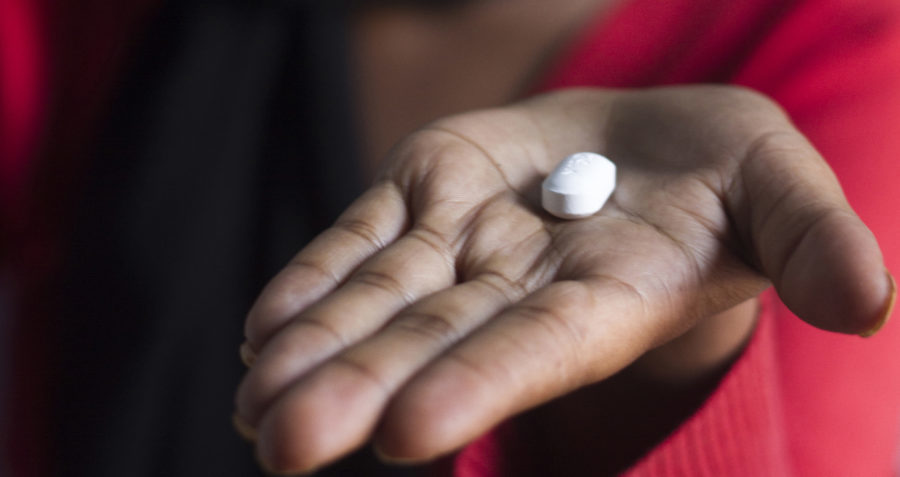Amélia’s story: living with HIV and learning from my peers
 © Frontline AIDS/Sheikh Rajibul Islam/duckrabbit
© Frontline AIDS/Sheikh Rajibul Islam/duckrabbit
Amélia is only 22 but has already experienced considerable hardship in life. She lost her parents when she was very young, and was sent to work from the age of nine.
She lives in Mozambique with her husband, two-year-old son, younger sister and brother-in-law. Their financial situation is precarious – her husband earns around £35 a month through his job as a security guard and finding the rent each month is a challenge.
Like her grandfather and her aunt before her, Amélia is living with HIV. She has seen how her aunt hid herself away and become isolated because of the discrimination she experienced due to her HIV status, with people refusing to talk to her. When she then discovered her own status, she initially despaired, feeling very alone with no parents to support her. She even contemplated suicide.
Creating a bond
Fortunately, through the health unit where she had her HIV test, Amélia was connected to local community adolescent treatment supporters (CATS) who play a crucial role in providing information, counselling and support to young people living with HIV. The CATS, who provide support through the Frontline AIDS led READY+ programme, are living with HIV themselves and draw on their own experiences to create a bond.
Amélia was won over by their friendly approach and the way they took the time to visit her at home where they talked and played card games. The cards have a dual purpose, in addition to being a good way to break the ice, they provide clear messages about HIV and some of its physical and biological impacts. They also show how antiretroviral therapy enables people to live healthy lives and the support is instrumental in encouraging adherence to treatment.
Amélia had been suffering from dizziness and nausea but, thanks to the peer support she receives, she now takes her medication consistently.
A bridge to formal healthcare
Angelita Cardosa, a nurse at the Munava health facility in Ponta Gea, believes that a young person living with HIV is often more open to receiving advice and information from a peer than a healthcare provider. She is also convinced that having peer involvement has helped reduce the rate of young people living with HIV dropping out of treatment.
“What helps a lot,” she says, “is that the teenager arrives at the health unit for the first time, exchanges contact with a CATS and creates a friendship, so they make a support plan. In some moments, CATS themselves during the conversation end up sharing their serostatus [HIV status] as a way of creating empathy. Therefore CATS provide support for adolescents and young people to continue treatment.”
Peer supporters provide a crucial link ensuring that young people are retained within HIV treatment services as well as connected to other sexual and reproductive health and rights services and support. They also facilitate support groups and run adolescent-friendly safe spaces in health centres where young people can ask confidential questions about HIV and other sexual health issues.
Amélia credits the CATS with having helped her to get her life back on track. She is now hoping to take up a vocational skills training course run by Young Africa. In the meantime though, she is adhering to treatment and looking to the future, dreaming of having a home of her own.
Our READY+ programme
READY+ is part of a portfolio of programmes designed to build Resilient and Empowered Adolescents and Young people (READY). The four-year programme aims to reach 30,000 adolescents and young people living with HIV in Mozambique, eSwatini, Tanzania and Zimbabwe. Its focus is on increasing access to holistic care and support: promoting not only sexual and reproductive health and rights but also mental health in order to foster resilience.
Tags
Community Adolescent Treatment Supporters (CATS)HIV treatmentMozambiquePeer supportREADYSexual and reproductive health and rights (SRHR)Stigma and discrimination

